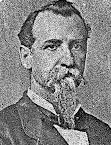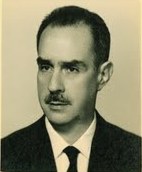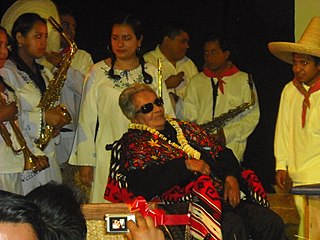
Alfonso XII was King of Spain, reigning from 1874 to 1885. After a revolution deposed his mother Isabella II from the throne in 1868, Alfonso studied in Austria and France. His mother abdicated in his favour in 1870, and he returned to Spain as king in 1874 following a military coup against the First Republic. Alfonso died aged 27 in 1885, and was succeeded by his unborn son, who became Alfonso XIII on his birth the following year.

Alfonso II, called the Chaste or the Troubadour, was the King of Aragon and, as Alfons I, the Count of Barcelona from 1164 until his death. The eldest son of Count Ramon Berenguer IV of Barcelona and Queen Petronilla of Aragon, he was the first King of Aragon who was also Count of Barcelona. He was also Count of Provence, which he conquered from Douce II, from 1166 until 1173, when he ceded it to his brother, Ramon Berenguer III. His reign has been characterised by nationalistic and nostalgic Catalan historians, as l'engrandiment occitànic or "the Pyrenean unity": a great scheme to unite various lands on both sides of the Pyrenees under the rule of the House of Barcelona.

The Royal Abbey of Santa Maria de Poblet is a Cistercian monastery, founded in 1151, located at the foot of the Prades Mountains, in the comarca of Conca de Barberà, in Catalonia (Spain). It was founded by Cistercian monks from France on lands conquered from the Moors. The main architect was Arnau Bargués.

Úrsula Hilaria Celia de la Caridad Cruz Alfonso was a Cuban singer and the most popular Latin artist of the 20th century, gaining twenty-three gold albums during her career. She received a star in the "Walk of Fame" in Hollywood. The U.S. President Bill Clinton awarded her the National Medal of Arts in 1994. She was renowned internationally as the "Queen of Salsa", "La Guarachera de Cuba", as well as "The Queen of Latin Music".

Alfredo de Zayas y Alfonso, usually known as Alfredo de Zayas under Spanish naming customs and also known as Alfredo Zayas, was a Cuban lawyer, poet and political figure. He served as prosecutor, judge, mayor of Havana, secretary of the Constitutional Convention, Senator 1905, president of the Senate 1906, Vice President of Cuba 1908–1913 and President of Cuba from May 20, 1921 to May 20, 1925.

Arturo Alfonso Schomburg, was a historian, writer, and activist. Schomburg was a Puerto Rican of African and German descent who moved to the United States and researched and raised awareness of the great contributions that Afro-Latin Americans and Afro-Americans have made to society. He was an important intellectual figure in the Harlem Renaissance. Over the years, he collected literature, art, slave narratives, and other materials of African history, which were purchased to become the basis of the Schomburg Center for Research in Black Culture, named in his honor, at the New York Public Library (NYPL) branch in Harlem.
Pedro Juan Gutiérrez, born 27 January 1950 in Matanzas, Cuba, is a Cuban novelist.
Héctor Aguilar Camín is a Mexican writer, journalist and historian.

X-Alfonso is a Cuban hip hop and afro-rock musician, who played with Audioslave in a concert in Havana on May 7, 2005 in "Tribuna Anti-imperialista".
Juan Boria also known as the Negro Verse Pharaoh, was a Puerto Rican poet known for his Afro-Caribbean poetry.

Juan de Dios Alfonso Armenteros, was a black Cuban band leader, composer and clarinetist. He founded the small orchestra Flor de Cuba, which played at dances and in theatres in the middle 19th century in Havana.
Punto guajiro or punto cubano – or simply punto – is a sung genre of Cuban music, a poetic art with music. It became popular in the western and central regions of Cuba in the 17th century, and consolidated as a genre in the 18th century. It has Andalusian and Canary Islands origins, and it integrated African elements in Cuba.

The Cuban Institute of Radio and Television is the organization responsible for the control of radio and television broadcasters in Cuba.
Yaima Ortiz Charro is a retired Cuban volleyball player and model, who competed in the 2004 and 2008 Summer Olympics.

Italian emigration into Cuba was minor in comparison with other waves of Italian emigration to the Americas, where a few thousand Italians moved to Cuba, compared to the millions that went to Argentina, Brazil and the United States.

Alfonso Bernal del Riesgo was a Cuban psychologist, known for his contribution to the origin and development of psychology as science and profession. He was a psychologist, lawyer, professor, writer, and researcher. Bernal del Riesgo had a long and successful career at the University of Havana. Through his writings he developed the notion of "Cubanosofía" that defined the study of the Cuban psychological identity. The writings of Enrique José Varona and Alfredo Aguayo influenced his early work.
Alfonso Cabello Llamas is a Spanish Paralympic cyclist. Representing Spain at the 2012 Summer Paralympics, Cabello won a gold medal in the men's 1 km time trial C4–5 taking the world record.
Alfonso Carlos Comín Ros was a Spanish industrial engineer, politician, and polygraph who carried out his work in Catalonia.

Celia is a Spanish-language telenovela produced by Fox Telecolombia for RCN Televisión and Telemundo which is based on the life of Cuban singer Celia Cruz. The telenovela's theme "La Negra Tiene Tumbao" received an award for Television Theme Song of the Year, at the 2016 American Society of Composers, Authors and Publishers Awards.
Alena Rojas Orta is a Cuban volleyball player. She is a member of the Cuba women's national volleyball team.













